|
October 2012
Training News is a free e-mail news service provided by AquaTT on education, training, news and events in Aquaculture and related sectors. The newsletter currently reaches over 6000 international recipients on a monthly basis. Please submit any relevant information for inclusion in next month's edition to news@aquatt.ie
*Please note that the AquaTT newsletter and AquaTT calendar are best viewed in Mozilla Firefox.
Contents
1. Education and Events
To search for MSc programmes, MSc and PhD courses, and other training opportunities (short courses, online courses, work placements, etc) in aquaculture, fisheries and aquatic resource management, please visit the Aqua-tnet Education Gate @ http://aquatnet.djangofoo.com/. This interactive web portal is the one-stop-shop for education in your field.
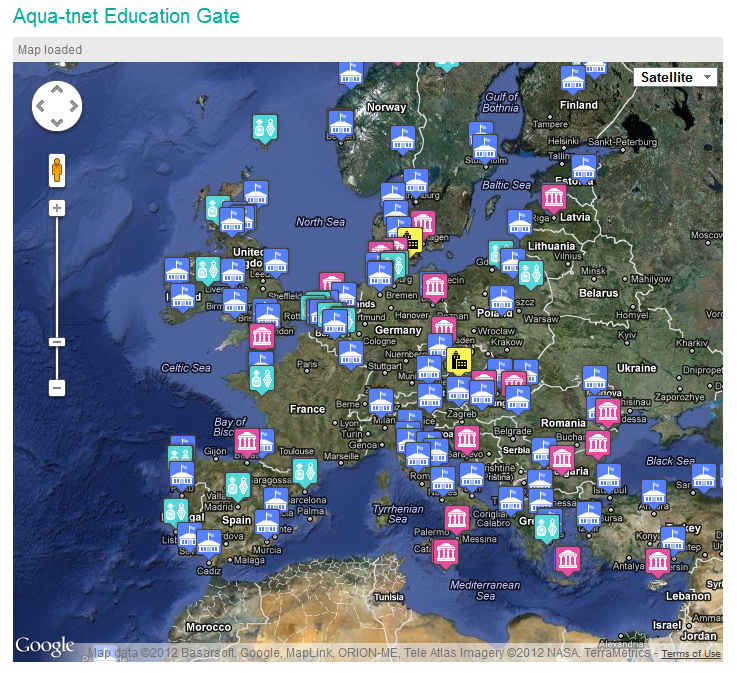
For information on all educational opportunities (courses, workshops, etc), as well as general events (conferences, meetings, etc) please refer to the AquaTT Announcement newsletter which is sent out with Training News. A comprehensive overview of all events is given in the AquaTT Calendar.
Please CLICK HERE to go to the archives of AquaTT Training News and Announcements.
2. Collaboration
AQUATT - ADDING VALUE USING OUR SERVICES
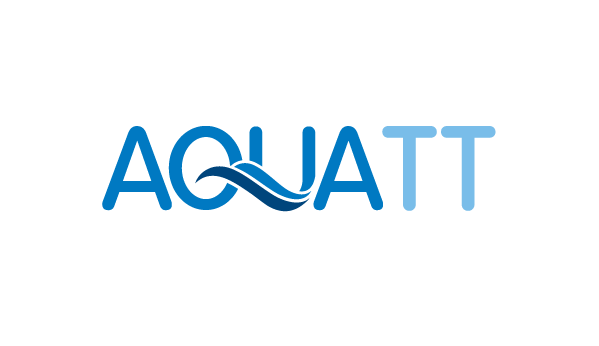 In addition to our core partnership role in EC-funded projects, AquaTT has recently launched a Mentoring, Training and Advisory service. Drawing on over 20 years of experience in designing, successfully applying for and implementing EC projects under a range of programmes, our team is now sharing its experiences through an extended suite of service offerings to universities, research institutes, organisations and companies. In addition to our core partnership role in EC-funded projects, AquaTT has recently launched a Mentoring, Training and Advisory service. Drawing on over 20 years of experience in designing, successfully applying for and implementing EC projects under a range of programmes, our team is now sharing its experiences through an extended suite of service offerings to universities, research institutes, organisations and companies.
Our Mentoring Service is targeted at individuals who want to improve their success rate in funding procurement. The service is customised to participants’ individual needs and involves measured, one-to-one support. The process begins with a needs analysis being conducted to assess prior knowledge and experience.
The results support the creation of a personalised skill development programme that upskills the participant in specific focus areas. Our mentoring service provides clear direction and instruction that is designed to increase participants’ abilities to secure funding for their research areas.
The Training Service provides customised courses to develop researchers’ generic skills. Similar to the mentoring process, our training service is based on a training needs analysis as well as pre- training surveys that identify gaps in participants’ knowledge and competences. The training provision is then customised, typically combining several training modules that meet the needs of the participants. Training modules are currently available in the following areas: Communication and Teamwork; Networking Skills; Introduction to Project Management; Project Management-Lifecycle and Organisation; Research Project Management; Project Design; Proposal Writing; and Risk Assessment and Management. All our modules adopt a blended learning approach using lectures, case studies and practical exercises.
The Advisory Service assists public and private sector organisations to develop communications, funding procurement and organisational strategies. Our advisory service also provides consultancy to universities and research institutes to develop capacities to conduct research knowledge transfer – one of our specialist areas of expertise. Our Mentoring, Training and Advisory service is designed to support others in their efforts to mobilise knowledge, drive innovation and ensure measurable value creation.
For more information regarding AquaTT’s Mentoring, Training and Advisory services please contact Adrian O’Looney, Programme Manager at adrian@aqautt.ie.
BACK to top
SOCIOEC Methodology Workshop
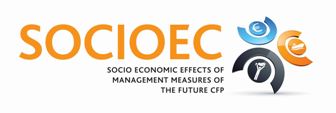 The SOCIOEC project held a methodology workshop on the 26th September 2012 in The Hague (The Netherlands). During the workshop, which took place at the Landbouw Economisch Instituut (LEI), project partners discussed possible methodologies to be used in the six case studies involved in SOCIOEC. The SOCIOEC project held a methodology workshop on the 26th September 2012 in The Hague (The Netherlands). During the workshop, which took place at the Landbouw Economisch Instituut (LEI), project partners discussed possible methodologies to be used in the six case studies involved in SOCIOEC.
The participants discussed the input needs required to deal with sustainability objectives, management incentives (including fishers' behavioural responses to these incentives) and the governance structures related to the current and future Common Fisheries Policy (CFP). These three issues form the core focus of the SOCIOEC project. The workshop included plenary sessions and case study-specific sessions. Representatives from the case studies identified methodologies designed to increase stakeholder involvement.
Ralf Dӧring, the project coordinator, outlined the importance of organising this methodology workshop. "Much of the success of the project depends on stakeholder engagement and involvement. Over the course of this workshop we have presented different methodologies such as focus groups or semi-structured interviews, which will allow the different SOCIOEC case studies to maximise their interaction with fishermen and benefit from the feedback they receive." Download the full press release here (Word doc.).
BACK to top
SEAFARE Project Delivers Promising Results
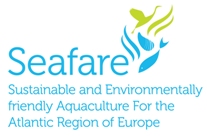 The SEAFARE project (Sustainable and Environmentally friendly Aquaculture for the Atlantic Region of Europe) has been working to strengthen the links between researchers and the aquaculture industry, and to influence policy development at regional and national levels. The project, which has been running for the last two years, is funded by the EU Atlantic Area Transnational Programme and has received a one-year extension to finalise its ongoing research and to ensure that an optimum knowledge transfer of its main results to society, relevant stakeholders and end-users is completed. The SEAFARE project (Sustainable and Environmentally friendly Aquaculture for the Atlantic Region of Europe) has been working to strengthen the links between researchers and the aquaculture industry, and to influence policy development at regional and national levels. The project, which has been running for the last two years, is funded by the EU Atlantic Area Transnational Programme and has received a one-year extension to finalise its ongoing research and to ensure that an optimum knowledge transfer of its main results to society, relevant stakeholders and end-users is completed.
Since the project began in 2010, scientists from IFREMER (France), Bangor University (UK), IFAPA (Spain) and IPMA (Portugal) have been working to develop a more sustainable and environmentally friendly aquaculture. Daniel Lee, SEAFARE project coordinator, stated “the success of the project relies on our capacity to develop and promote environmentally sustainable technologies. Having seen how the project's partners have been developing their work, I am happy to say we will be able to provide tools to SMEs and public authorities to help them implement sustainable and environmentally friendly aquaculture practices”. Download the full press release here (Word doc.).
In addition the project will hold its 6th partner
meeting in Dublin, Ireland on the 4th and 5th
of December 2012. This meeting will focus on the achievements obtained by the
different working groups and will pay special attention to the
knowledge management procedures and knowledge transfer actions
undertaken by the consortium. For more information visit the SEAFARE
webpage www.seafareproject.eu or contact project coordinator Mr. Dan Lee
on +44 1248 388603 or email d.lee@bangor.ac.uk.
BACK to top
Stakeholders will meet in Rome to create the AQUAMED Multi-Stakeholder Platform for Mediterranean Aquaculture
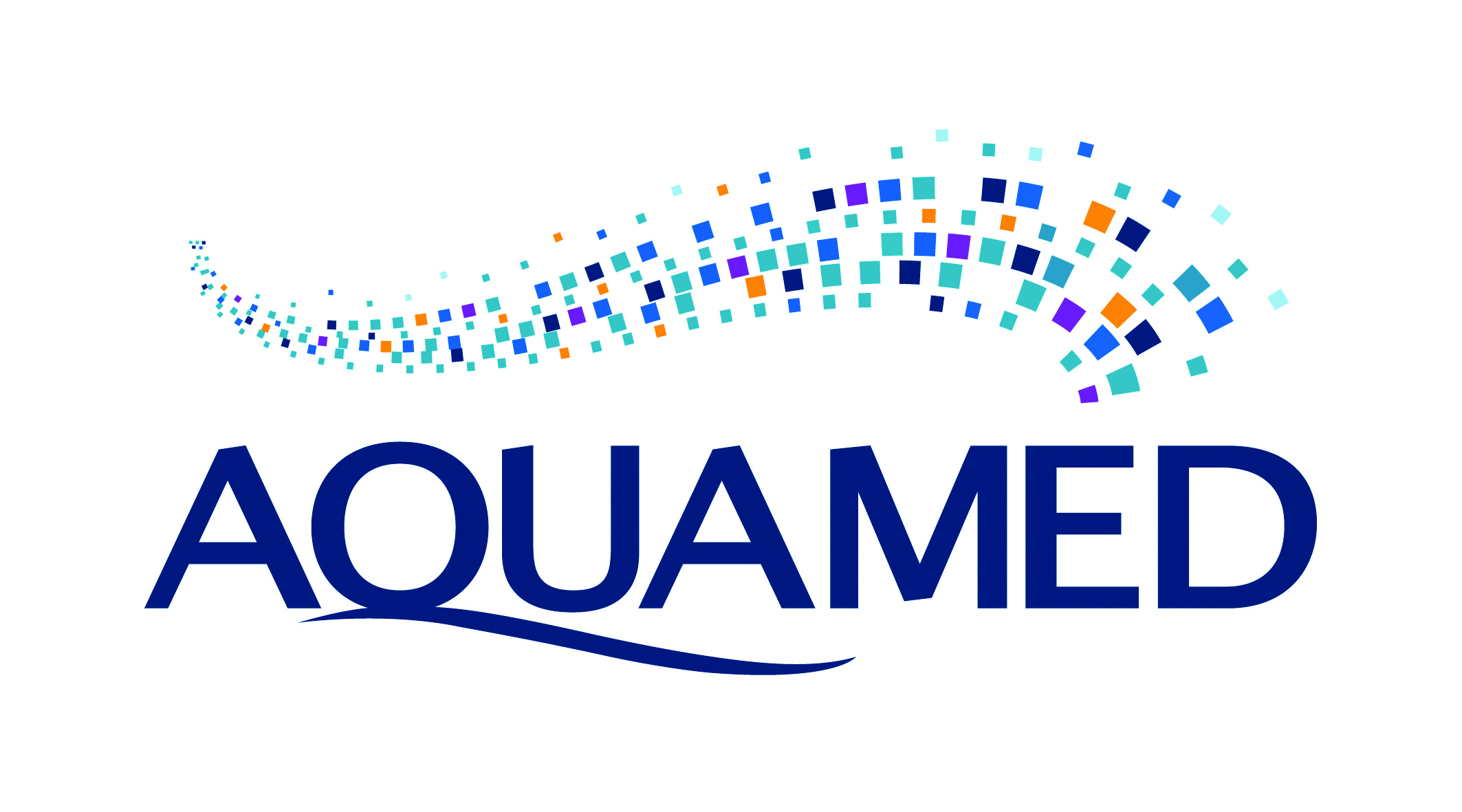 The AQUAMED project has organised the first meeting of the AQUAMED Multi-Stakeholder Platform (MSHP) for the Mediterranean Region (Southern Europe and North Africa), which will take place in Rome on the 20-21 November 2012. The AQUAMED project has organised the first meeting of the AQUAMED Multi-Stakeholder Platform (MSHP) for the Mediterranean Region (Southern Europe and North Africa), which will take place in Rome on the 20-21 November 2012.
AQUAMED, The Future of Research on Aquaculture in the Mediterranean Region, is an EU Seventh Framework Programme (FP7) project which aims to develop a cross-functional strategy for sustainable aquaculture research in the Mediterranean region. The platform is being created to ensure that future research and innovation needs necessary for a sustainable Mediterranean aquaculture industry are identified and prioritised by a multi-stakeholder group.
The MSHP will contribute to the development of a common transnational Mediterranean Strategic Research and Innovation Agenda (SRIA), which represents the shared objectives and synergies between the different countries participating. Once a SRIA is developed, it is expected that the MSHP will become operational with a role to promote and facilitate the mobilisations of resources (financial, manpower, infrastructure) in order to implement the SRIA.
For more information please check http://www.aquamedproject.net/.
BACK to top
Successful ICES/COEXIST interactive workshop in Bergen
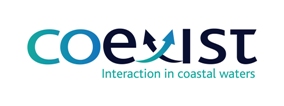 Over 30 stakeholders from different sectors (aquaculture, fisheries, coastal zone management, tourism, energy, etc.) along with 20 members from the COEXIST project partnership and ICES representatives met in Bergen on 19th September 2012 for the joint ICES/COEXIST workshop: “Best Practice Guidelines for spatial planning to integrate fisheries, aquaculture and other uses in the coastal zone”. Over 30 stakeholders from different sectors (aquaculture, fisheries, coastal zone management, tourism, energy, etc.) along with 20 members from the COEXIST project partnership and ICES representatives met in Bergen on 19th September 2012 for the joint ICES/COEXIST workshop: “Best Practice Guidelines for spatial planning to integrate fisheries, aquaculture and other uses in the coastal zone”.
The workshop was designed as a facilitated and interactive workshop, where the stakeholders were asked to give as much input as possible to the COEXIST results obtained so far. These inputs are to be used to adapt the results to their needs as coastal zone users and managers.
Dr. Torsten Schulze, the workshop organizer, commented, “I was deeply impressed by the stakeholders. They worked very hard and concentrated until the very end of the workshop, keeping the facilitators busy taking down their ideas. From a first look at the stakeholders’ comments, we got plenty of valuable constructive criticisms and are happy to implement the ideas into our work.” Download the full press release here (PDF).
BACK to top
Call for Abstracts for Environment and Health in Africa (Climate and vector-borne diseases) Symposium
 As part of the 4th East African Community Health and Scientific Conference, scheduled to take place in Kigali, Rwanda on 27 – 29 March 2013, the EC 7th Framework Programme funded projects, HEALTHY FUTURES (Health, environmental change and adaptive capacity) and QWeCI (Quantifying Quantifying Weather and Climate Impacts on Health in Developing Countries), will jointly host a symposium. Both projects are funded through the Environment and Health component of the 7th Framework Programme, and involve several eastern Africa-based partners. As part of the 4th East African Community Health and Scientific Conference, scheduled to take place in Kigali, Rwanda on 27 – 29 March 2013, the EC 7th Framework Programme funded projects, HEALTHY FUTURES (Health, environmental change and adaptive capacity) and QWeCI (Quantifying Quantifying Weather and Climate Impacts on Health in Developing Countries), will jointly host a symposium. Both projects are funded through the Environment and Health component of the 7th Framework Programme, and involve several eastern Africa-based partners.
The symposium, called Environment and health in Africa (Climate and vector-borne diseases), brings together researchers at the cutting edge of research in understanding the relationships between health and environment, and in particular links between climate and vector-borne diseases, in Africa. A Call for Abstracts has been announced with the deadline for receipt of abstracts: 30th November 2012.
Further information on the symposium including the application procedure can be found here. For further information on both projects, please visit their websites: http://www.healthyfutures.eu (HEALTHY FUTURES) and http://www.liv.ac.uk/qweci (QWeCI). For more details on the 4th East African Community Health and Scientific Conference, please visit www.rbc.gov.rw.
BACK to top
The Future of European Aquaculture
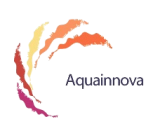 "The Future of European Aquaculture" launch event took place successfully on the 30th October 2012 in the Royal Belgian Institute of Natural Sciences, Brussels. The event focused on the unveiling of the Vision of the European Aquaculture Technology & Innovation Platform, which has been developed through the widest consultation ever made on European aquaculture and is supported by the European FP7 project 'Aquainnova'. "The Future of European Aquaculture" launch event took place successfully on the 30th October 2012 in the Royal Belgian Institute of Natural Sciences, Brussels. The event focused on the unveiling of the Vision of the European Aquaculture Technology & Innovation Platform, which has been developed through the widest consultation ever made on European aquaculture and is supported by the European FP7 project 'Aquainnova'.
The Vision document, including the Strategic Research and Innovation Agenda and premise for the Plan of Action going forward was presented to the audience and warmly welcomed. Experts from the aquaculture profession, research and development, universities, NGOs, the European Investment Bank, the European Commission and other stakeholders debated key questions on forecasts and needs of the sector in 2030, and reiterated the commitment and need to further strengthen and grow the Aquaculture sector in a responsible and sustainable manner as laid out in the Vision document. To view the Vision document and to learn more about the European Aquaculture Technological and Innovation Platform, please visit www.eatip.eu.
BACK to top
3. Other
New Maritime Agenda for growth and jobs adopted
A European agenda for creating growth and jobs in the marine and maritime sectors was recently adopted by European Ministers for maritime policy and the European Commission, represented by President Jose Manuel Barroso and Commissioner Maria Damanaki at a conference in Limassol organised by the Cypriot Presidency. Five years after the launch of the EU Integrated Maritime Policy, the Member States and the Commission reaffirmed that a dynamic and coordinated approach to maritime affairs enhances the development of the EU's 'Blue Economy' while ensuring the health of seas and oceans. Read more from this article at http://europa.eu/rapid/press-release_IP-12-1081_en.htm
BACK to top
Consultation on Marine Knowledge 2020: from seabed mapping to ocean forecasting
The oceans and seas that surround Europe offer new opportunities for growth and jobs to achieve the goals of the Europe 2020 strategy. To best tap this potential, according to the European Commission, it is vital to have better knowledge of what is happening under the sea. The executive therefore proposes to create a digital seabed map of European waters by 2020 by collecting all existing data in a single coherent database accessible to everyone. With that aim in mind, the Commission launched, in a green paper on ‘Marine knowledge’ adopted on 29th August, a consultation on how this objective can best be achieved. The consultation will run until 15th December. The objective of the consultation is to understand stakeholders' opinions on options for future governance of
the EU's "Marine knowledge 2020" initiative and on the possible
involvement of the private sector. Visit http://ec.europa.eu/dgs/maritimeaffairs_fisheries/consultations/marine-knowledge-2020/index_en.htm to submit your contribution.
BACK to top
Call for papers - AQUACULTURE 2013, 3-7 November 2013, Palacio de Congresos de Canarias, Las Palmas, Gran Canaria
This conference will not only celebrate the last 40 years of outstanding science accomplishments in aquaculture, it will identify the top science challenges for the next generation of global aquaculture. The conference will be essential for helping to shape a generational change to allow new leaders to initiate the next science accomplishments needed to double global aquaculture production. Submit online now at http://www.aquaculture-conference.com/. Abstract submission deadline: Friday 24th May 2013.
BACK to top
Call for papers - larvi 2013, 2-5 September 2013, Ghent University, Belgium
Capitalising on the previous "larvi" symposia (in ’91, ’95, ’01, ’05, ‘09), the Aquaculture R&D Consortium of Ghent University, the Norwegian University of Science and Technology and the COST action "LARVANET" have joined again in the organising committee for "larvi'13" and are inviting the academic as well as the private sector to attend the 6th Fish and Shellfish Larviculture Symposium. The event will bring together European and non-European stakeholders to discuss and review the latest progress in the sector, and to identify problems and explore avenues for future collaboration.
Interested contributors to the symposium programme are hereby invited to submit to the Symposium Secretariat before 5th November 2012 indicative titles and a 10-line summary of the contribution (paper or poster) they would like to present at: www.aquaculture.ugent.be/larvi/preregistration.htm.
BACK to top
User needs survey - Infrastructures for the needs of Marine Biology in Europe
Euromarine – Integration of European Marine Research Networks of
Excellence – are collecting information about conditions of access and use
profiles of facilities with the ultimate objective of better adjusting the
offer and use of infrastructures for the needs of Marine Biology in Europe. A
report will be produced as an output integrated in WP5 of Euromarine. To complete the online questionnaire visit https://www.surveymonkey.com/s/euromarine_IR-Users. Deadline: 9th of November
2012. Please send additional documentation – e.g. 1) tables of access costs, 2) user guidelines, 3) documents with evaluation criteria of applications for
access and other information that may be relevant (as PDF, doc, docx, ods, xls,
xlsx or tif-File) - by e-mail to Adelino Canário (acanario@outlook.com).
BACK to top
TARGETFISH - Targeted disease prophylaxis in European fish farming
TargetFish
is a €6 million collaborative project funded by
the European Commission 7th Framework programme (grant agreement no.
311993). The project will run for five years starting 1st October 2012.
TargetFish, coordinated by Dr. Geert Wiegertjes (Department of Animal
Sciences, Cell Biology & Immunology group) brings together leading
European research groups that are experts on fish immune systems and
enterprises from the Biotech and Veterinary sectors that aim to
commercialise fish vaccines for European fish farming. Download the full article here (Word doc.).
BACK to top
Warmer oceans could mean smaller fish
A
new study led by fisheries scientists at the University of British
Columbia has found that changes in ocean and climate systems could lead
to smaller fish. The study provides the first ever
global projection of the potential reduction in the maximum size of
fish in a warmer and less-oxygenated ocean. Read more from this article
at http://www.worldfishing.net/news101/warmer-oceans-could-mean-smaller-fish.
BACK to top
Rainbow Trout Farming's Reduced Carbon Footprint
Rainbow trout farming causes less damage to the environment than animal products such as beef, pork or chicken. That’s the conclusion of a pioneering study involving rainbow trout producer IPEASA and fish feed manufacturer Skretting, conducted by the Technology Center of Miranda de Ebro (CTME) in Burgos, funded by Castilla y León Innovation Agency, Financing and Business Internationalisation. By quantifying greenhouse gas emissions from inland aquaculture, the project analysed the carbon footprint of hatchery-reared rainbow trout resulting from different feeds. Read more from this article
at http://www.seafoodsource.com/newsarticledetail.aspx?id=18076.
BACK to top
Limit climate change to save coral reefs
Almost
all coral reefs are expected to be subject to severe degradation - that
is unless action is undertaken to mitigate greenhouse gas emissions. It
is also assumed that corals can adapt at extremely rapid rates. But
even if all the assumptions are correct, only two thirds of the coral
reefs will be safe according to a study recently published in the
journal Nature Climate Change. Read more from this article at http://cordis.europa.eu/fetch?CALLER=EN_NEWS&ACTION=D&SESSION=&RCN=35096.
BACK to top
Preserving large females key to sustaining Atlantic cod
Cod was once a staple diet across many European countries, and so important in fact that in the past some countries have even gone to war over this important resource. Their popularity, however, means that they have become overfished in some areas leading to a shortage of large and old cod, which in turn has led to the fish becoming more sexually mature at a younger age. This, according to research conducted by the University of Gothenburg, Sweden has led to a serious change in cod stocks and could severely impact the health, physiological ageing and reproductive capacity of Atlantic cod. Read more from this article at http://cordis.europa.eu/fetch?CALLER=EN_NEWS&ACTION=D&SESSION=&RCN=35156.
BACK to top
Small bacteria helping big things grow in the ocean
Around 71 per cent of the Earth's surface is made up of salt-water oceans - that's 98 per cent of all water. The ecosystems that exist beneath their surface are diverse and vibrant. Their sheer scale, however, means that there is still a lot to be discovered. And that is exactly what an international team comprising scientists from Europe and the United States have done. Their new discovery - of a symbiosis between tiny single-celled algae and highly specialised bacteria in the ocean - will help scientists to better understand oceans and the important role they play in our lives. Read more from this article at http://cordis.europa.eu/fetch?CALLER=EN_NEWS&ACTION=D&SESSION=&RCN=35127.
BACK to top
A seafood rich diet means living longer
People
in southern Europe who eat what has become known as the Mediterranean
diet live longer than their northern European counterparts with a lower
incidence of coronary heart disease. Now it has also been shown by a
team of Israeli scientists that people who lose weight on a
Mediterranean style diet keep the weight off, unlike people who follow
other diets. So what does this miracle diet
consist of? A Mediterranean diet is usually described as one with plenty
of fruits, vegetables, fish, whole grains, legumes, olive oil and
moderate amounts of alcohol (red wine). Meat consumption is low and
there is virtually no consumption of butter, although feta cheese and
yogurt are eaten. However, what is now called a Mediterranean diet can often be very different to that described in early studies. Read more from this article at http://www.seafoodsource.com/newsarticledetail.aspx?id=18095.
BACK to top
Open access to FP7 peer-reviewed articles and other publications
Are you interested in a specific EU-funded project and need quick access to all relevant information? In close cooperation with http://www.openaire.eu (OpenAIRE) - the Open Access Infrastructure for Research in Europe, CORDIS has enhanced its project pages. Read more from this article at http://cordis.europa.eu/fetch?CALLER=EN_NEWS&ACTION=D&SESSION=&RCN=35148.
BACK to top
OneZoom Tree of Life Explorer
OneZoom is committed to heightening awareness about the diversity of life on earth, its evolutionary history and the threats of extinction. The website allows you to explore the tree of life in a completely new way: it's like a map, everything is on one page, all you have to do is zoom in and out. OneZoom also provides free, open source, data visualisation tools for science and education, currently focusing on the tree of life. You can create visualisations of your own data as well as explore ones we have made. Explore the tree of mammal life at http://www.onezoom.org/. Coming soon: The tree of amphibian life with over 5,000 species.
BACK to top
4. PiscesTT Jobs
Job vacancies, MSc & PhD vacancies and student placements on WWW.PISCESTTJOBS.COM
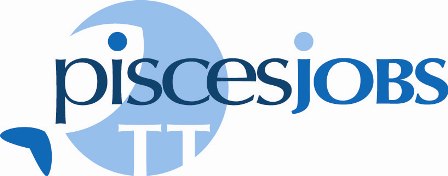
If you are interested in viewing or posting a job vacancy please go to http://www.piscesttjobs.com/ or contact aquatt@aquatt.ie Subscribe at http://www.piscesttjobs.com/feeds/ for live RSS updates of new job postings.
Featured position: Associate Professor or Professor in Veterinary Science at the University of Nordland, Faculty of Biosciences and Aquaculture - The Faculty of Biosciences and Aquaculture, University of Nordland, jointly with the University Medicine and Pharmacy in Kosice, Slovakia, is offering a Joint Bachelor Degree in Animal Science. The faculty is hiring an Associate Professor/Professor to strengthen the Animal Sciences education program in the coming years, including additional courses in this field. Download further information here (Word doc.)
BACK to top
About AquaTT
 AquaTT devised "TRAINING NEWS" as a free monthly e-newsletter that serves as an important communication channel for education and training opportunities for the Aquaculture, Fisheries and related Maritime sectors in Europe. It provides information on education and training developments, upcoming events, collaboration opportunities, job vacancies and student activities. All issues of Training News are archived at http://www.aquatt.ie/ AquaTT devised "TRAINING NEWS" as a free monthly e-newsletter that serves as an important communication channel for education and training opportunities for the Aquaculture, Fisheries and related Maritime sectors in Europe. It provides information on education and training developments, upcoming events, collaboration opportunities, job vacancies and student activities. All issues of Training News are archived at http://www.aquatt.ie/
AquaTT welcomes any feedback regarding content, presentation and user-friendliness of the newsletter. Please forward this mail to any colleagues that may be interested. Please submit relevant information for dissemination to news@aquatt.ie.
DISCLAIMER: AquaTT provides this newsletter as a free service to interested parties. Most of the information is provided by AquaTT. Where it is not, the source of the news is provided in the text of the news brief or else AquaTT attributes the news to the coordinating body as the "Data Source Provider". In no way does this newsletter, by promoting events not coordinated by AquaTT, intend to wrongly or inappropriately claim projects, news, etc. as its own nor is it responsible for incorrect information provided from other sources. "Training News" is a promotional tool and forum for both AquaTT and other organisations.
| 














 AquaTT devised "TRAINING NEWS" as a free monthly e-newsletter that serves as an important communication channel for education and training opportunities for the Aquaculture, Fisheries and related Maritime sectors in Europe. It provides information on education and training developments, upcoming events, collaboration opportunities, job vacancies and student activities. All issues of Training News are archived at
AquaTT devised "TRAINING NEWS" as a free monthly e-newsletter that serves as an important communication channel for education and training opportunities for the Aquaculture, Fisheries and related Maritime sectors in Europe. It provides information on education and training developments, upcoming events, collaboration opportunities, job vacancies and student activities. All issues of Training News are archived at